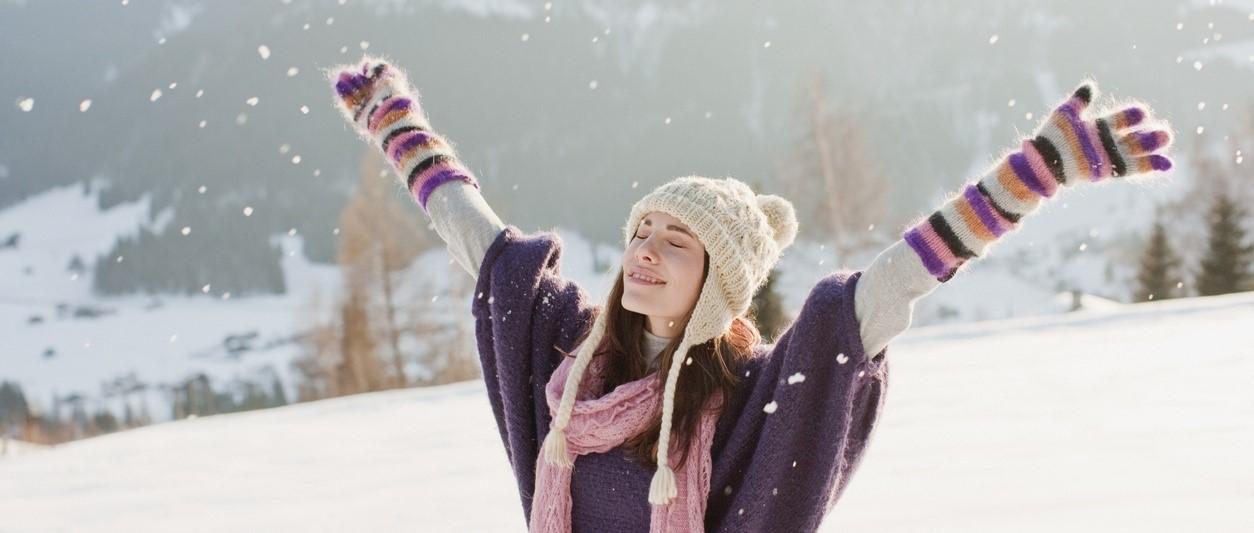
How to stay warm this winter
Peer reviewed by Dr Colin Tidy, MRCGPLast updated by Lynn StephenLast updated 5 Dec 2025
Meets Patient’s editorial guidelines
- DownloadDownload
- Share
- Language
- Discussion
This winter, many of us are feeling wary about turning up the thermostat. High energy prices and the strain on household finances mean that many people are being forced to cut costs. But while it’s important to keep an eye on the finances, it's also essential to consider our health and the health of those around us.
In this article:
Continue reading below
Does getting cold affect our immune system?
Many of us will have been told ‘you'll catch a cold’ when we ventured out without a coat as children. But while there's no evidence that cold directly affects the immune system, cold temperatures might help existing viruses to thrive.
Doctor Samar Mahmood, GP, explains that being cold does not directly affect your immune system, but research has shown that some viruses - especially rhinovirus, which causes the common cold - replicate better in cold and dry conditions.
He says: "This means we are likely to get more colds in the winter, or during cold temperatures, than in the warmer summer months."
How cold is too cold?
If we're used to wandering around our house in a t-shirt whatever the weather, dropping the heating a couple of degrees might simply mean we need to dress more warmly when indoors. But if we're trying to avoid turning on the heating in the coldest weather, it's important to understand the symptoms of our body becoming dangerously cold.
Mahmood explains that the average normal body temperature is anything between around 36°C and 37.5°C.
"If your core body temperature drops below around 35°C then signs of hypothermia can set in," he says. "This includes shivering, drowsiness, pallor, initially rapid - and then eventually slowed down - breathing, and a fast heart rate.”
Who is most susceptible?
While being too cold is unpleasant for anyone, some people are more susceptible to the cold than others. Colder temperatures can be especially dangerous to those who are vulnerable or dealing with poor health.
Mahmood adds that low temperatures are more dangerous for people at the extremes of age - such as very small children and the elderly.
Keeping an eye on others
Even if we are not feeling the financial pinch this winter, it's important to be mindful of others. Neighbours or relatives, especially those who are elderly, might be embarrassed to admit they are living in conditions that are too cold. If you are concerned, it's important to be aware of how to know that someone is struggling in the cold temperatures.
Mahmood says: "Signs may include having cold fingers and/or toes, as the extremities get colder first. You may also notice a person shivering.
"If this carries on and the body temperature continues to reduce then more serious signs can develop. These may include some of the signs of hypothermia, and also blueish discolouration of the skin as well as confusion."
Seek urgent medical advice if someone is showing the signs of hypothermia.
Keeping warm this winter
In this time of financial crisis, staying warm this winter may not be easy. However, the following advice from Age UK may help to stave off the harmful affects of cold weather this winter.
Keep moving
Exercise can help to raise our core temperature. So being more active can help. Support and encourage the people in your life to keep moving around at home or take up simple indoor exercises, especially if they can't get out and about as usual.
Eat well
As well as protecting our outer warmth, eating well can both warm us up and boost our energy levels. Eating well is important to keep someone’s strength up, and hot food and drinks will help you stay warm.
Layer up
Thick jumpers can be great at staving off the winter cold, but if you want to stay toasty, having several layers of clothing is the best way to keep warm in winter. If you're heading out, make sure you take some extra layers with you, even if you don't need them immediately - the temperature can drop significantly when the sun goes in.
Get jabbed
To avoid winter bugs, it's also important to take advantage of Flu jabs if offered, and keep up to date with your Covid19 boosters. Being cold can help viruses to thrive, so it's important to stay protected.
Speak to your energy company
With the high cost of energy, many of us are dreading how the price of our gas and electric may affect our finances. If you are worried about paying your bills, or turning on the heating at all, it's worth having a chat with your energy company which can offer advice and may be able to provide support.
What if I’m worried?
If you're worried about an elderly or vulnerable person, make sure you seek advice. If the person is elderly, Age UK has a variety of ways it can support.
While some people may claim that the cold 'doesn't do any harm' this is far from being the case. Keeping warm during the winter is an important part of staying healthy, especially for those who are vulnerable. If concerned, make sure you reach out to friends or relatives, or seek medical advice if symptoms develop.
Patient picks for Winter health

Mental health
How to boost your motivation levels during winter
Most of us know the feeling. It's the middle of winter, it's very cold outside, the mornings are dark and the only place you want to be is buried beneath the duvet. Decreased motivation levels and low mood can affect all aspects of our lives. But why exactly do we feel less motivated during the colder months? And how do we combat winter tiredness?
by Emily Jane Bashforth

Diet and nutrition
How to comfort eat healthily in winter
When the weather gets colder, many of us look forward to getting cosy indoors with hot and hearty winter comfort foods. However, if these aren't healthy, they can make us feel tired and sluggish when the days get shorter and darker. With some small changes, however, it's possible to create tasty, comforting meals that are good for you too.
by Victoria Raw
Continue reading below
Article history
The information on this page is peer reviewed by qualified clinicians.
Next review due: 5 Dec 2028
5 Dec 2025 | Latest version
22 Dec 2022 | Originally published
Authored by:
Gillian Harvey

Ask, share, connect.
Browse discussions, ask questions, and share experiences across hundreds of health topics.

Feeling unwell?
Assess your symptoms online for free
Sign up to the Patient newsletter
Your weekly dose of clear, trustworthy health advice - written to help you feel informed, confident and in control.
By subscribing you accept our Privacy Policy. You can unsubscribe at any time. We never sell your data.